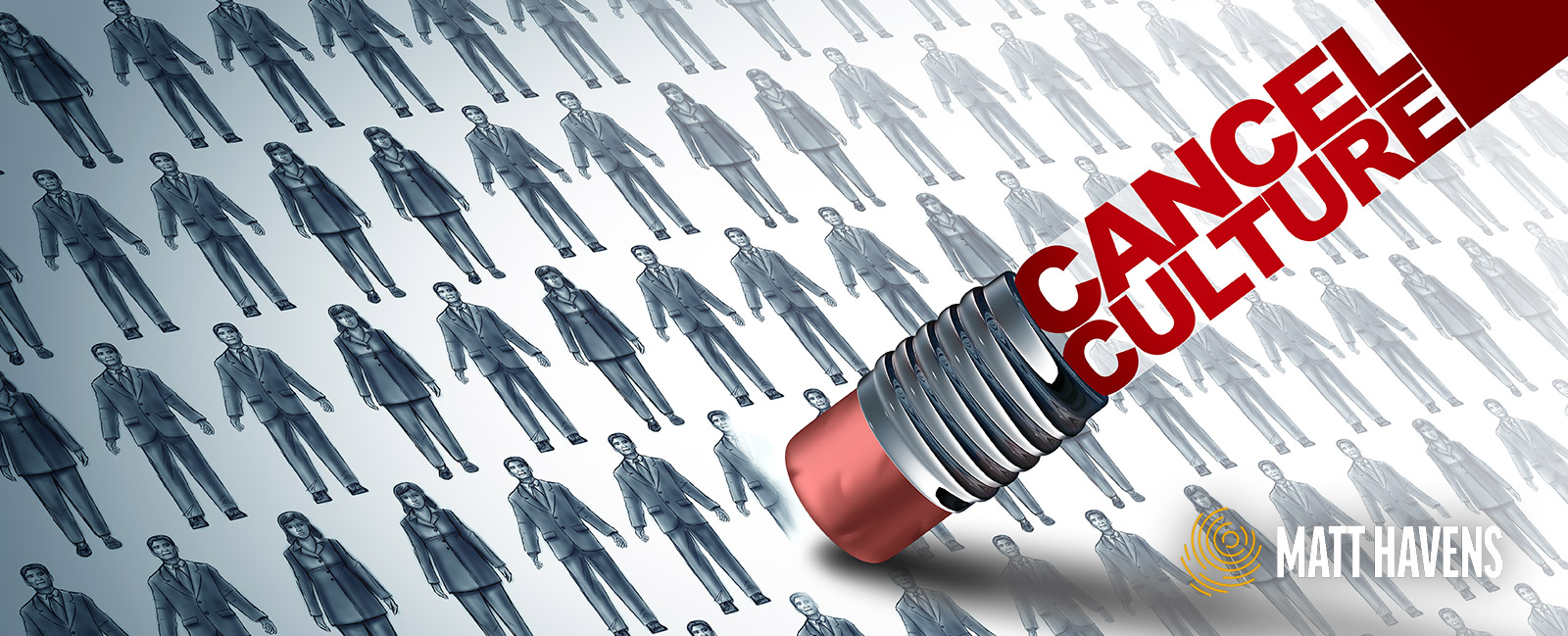Thankfully, I’m not a celebrity. I know the money and fame sound tempting, but becoming a celebrity brings with it a host of negative consequences most of us wouldn’t want to deal with consistently (see: paparazzi). And I won’t even get started on what it takes to get in shape to play an Avenger superhero. That’s a key reason I don’t want to be a celebrity. Give me my donuts, please.
But one thing business owners, leaders and even front-line employee share with celebrities is the ability to get “cancelled.” As I’m sure you already know, ‘cancelling’ someone is the process of people banding together to promote the shaming of an individual (or brand) over what is generally considered to be inappropriate behavior. While once reserved for celebrities, the movement has increasingly been impacting brands and organizations. Most recently we’ve seen calls for brands to be cancelled over insensitive imagery or history (Uncle Ben’s, Aunt Jemima), racial insensitivity (Crossfit, the Washington Redskins), or failing to respond strongly enough against acts of intolerance or hatred (Facebook).
As with most things today, the idea of cancel culture is spurring all types of debate. Should someone lose their job over racist comments made online or caught on video? (Yes. That’s actually an easy one). But some other situations might be more of a grey-area. This article is not going to dive into those debates. The point is, whether you agree with cancel culture or not, it is real and has the ability to have a real and lasting impact on you, your career, and your organization.
It’s important that businesses today understand that your current and prospective customers – and employees as well – want to engage with brands who won’t turn a blind eye to injustice and are willing to stand up for what’s right. In short, they want to be treated as humans and know that the businesses they interact with will stand up for humanity, too. How can a business do that? There are several simple ways:
When mistakes are made, own up to them – quickly and with compassion.
Stand up for what’s right, even if nobody is looking.
Treat employees the way you’d treat family with kindness, compassion and trust.
While those behaviors should be no-brainers and easy to understand, one other facet of modern life that cancel culture plays a significant role in is that work and life are not two separate societies, and this is a concept that many organizations are struggling to process. There used to be a time when work and life were separate. Not anymore! How you act and who you are at work bleeds into your personal life and vice versa. Particularly as a leader, employees want to know they work for someone who shares similar values. Don’t expect to be given a free pass over behavior done off the clock. Additionally, employers need to do more in the hiring process to understand a candidate’s character instead of focusing exclusively on work experience or degrees. The people working in an organization will quickly become the face of that organization if they act up online or in the public view, so it’s worth the extra effort early and often to ensure their character is a fit for your family.
There’s more, but I should note this advice only works if you believe in treating everyone as equal – as humans. If you’d like to learn more strategies about how to make your business human, contact me today.








